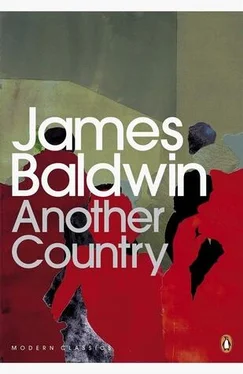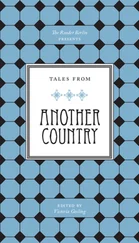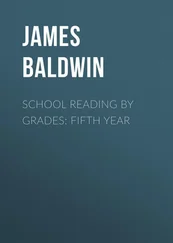“But you so dressed up — you sure you ain’t ashamed to be seen with us?”
He was also dressed up, in his best dark suit and a shirt and tie he had borrowed from Vivaldo.
Ida and her mother laughed. “Boy, you stop teasing your sister,” said Mrs. Scott.
“Well, go on, get your coat,” Rufus said, “and we’ll make tracks.”
“We going far? ”
“We going far enough for you to have to wear a coat .”
“She don’t mean is you going far,” said Mrs. Scott. “She trying to find out where you going and what time you coming back.”
Ida had moved to the door by which she had entered and stood there, hesitating. “Go on,” her mother said, “get your coat and mine, too. I’m going to walk down the block with you.”
Ida left and Mrs. Scott smiled and said, “If she thought I was coming with you today, she be highly displeased. She want you all to herself today.”
She picked up the empty beer glasses and carried them into the kitchen. “When they were younger,” she said to Vivaldo, “Rufus just couldn’t do no wrong, far as Ida was concerned.” She ran water to rinse out the glasses. “She always been real afraid of the dark, you know? but, shucks, honey, many’s the time Ida used to crawl out of her bed, middle of the night, and go running through this dark house to get in bed with Rufus. Look like she just felt safe with him. I don’t know why, Rufus sure didn’t pay her much mind.”
“That’s not true,” said Rufus, “I was always real sweet to my little sister.”
She put the glasses down to drain and dried her hands. She peered into a hand mirror and patted her hair and then carefully put on her hat. “You used to tease her something awful,” she said.
Ida returned, wearing a coat trimmed with fur, and with her mother’s coat over her arm.
“Ah!” cried Rufus, “she’s glamorous!”
“She’s beautiful,” said Vivaldo.
“Now, if you-all going to make fun of me,” said Ida, “I ain’t going to come with you nowhere.”
Mrs. Scott put on her coat and looked critically at her bareheaded daughter. “If she don’t stop being so glamorous, she going to end up with the flu.” She pulled Ida’s collar up higher and buttoned it. “Can’t get nobody in this family to wear a hat,” she said, “and then they wonder why they always full of cold.” Ida made an impatient gesture. “She afraid a hat going to mess up her hair. But she ain’t afraid of the wind doing nothing to it.” They laughed, Ida a little unwillingly, as though she were embarrassed that the joke was being shared with Vivaldo.
They walked down the wintry block. Children were playing stickball in the streets, but it was otherwise nearly empty. A couple of boys were standing on a nearby stoop and they greeted Ida and Rufus and Mrs. Scott and looked with interest at Vivaldo; looked at him as though he were a member of an enemy gang, which, indeed, he had been, not very long before. An elderly woman slowly climbed the brownstone steps of a run-down building. A black sign jutted out from the building, saying, in white letters, MOUNT OLIVE APOSTOLIC FAITH CHURCH.
“I don’t know where your father done got to,” said Mrs. Scott.
“He right around the corner, in Jimmy’s Bar,” said Ida, shortly. “I doubt if he be home by the time I get back.”
“Because I know you ain’t intending to be home before four in the morning,” said Mrs. Scott, smiling.
“Well, he ain’t going to be home by then, ” said Ida, “and you know it well as I do.”
A girl came toward them now, narrow-hipped, swift, and rough-looking. She, too, was bareheaded, with short, dirty, broken-off hair. She wore a man’s suede jacket, too large for her, and she held it at the neck with her hand. Vivaldo watched Ida watching the girl approach.
“Here come Willa Mae,” said Mrs. Scott, “Poor little thing.”
Then the girl stood before them, and she smiled. When she smiled her face was very different. She was very young.
“How you-all today?” she asked. “Rufus, I ain’t seen you for the longest time.”
“Just fine,” Rufus said. “How you making it?” He held his head very high and his eyes were expressionless. Ida looked down at the ground and held on to her mother.
“Oh”—she laughed—“I can’t complain. Wouldn’t do no good nohow.”
“You still at the same place?”
“Sure. Where you think I’m going to move to?”
There was a pause. The girl looked at Vivaldo, looked away. “Well, I got to be going,” she said. “Nice running into you.” She was no longer smiling.
“Nice seeing you,” said Rufus.
After the girl had gone, Ida, said disapprovingly, “She used to be your girl friend, too.”
Rufus ignored this. He said to Vivaldo, “She used to be a nice girl. Some cat turned her on, and then he split.” He spat on the sidewalk. “Man, what a scene.”
Mrs. Scott halted before steps leading up into a tenement. Ida took Rufus by the arm. “I got to leave you children here,” said Mrs. Scott. She looked at Rufus. “What time you going to bring this girl home?”
“Oh, I don’t know. It won’t be late. I know she want to go out nightclubbing but I ain’t going to let her get too drunk .”
Mrs. Scott smiled and held out her hand to Vivaldo.
“Nice meeting you, son,” she said. “You make Rufus bring you by again, you hear? Don’t you be a stranger.”
“No ma’am. Thank you, I’ll come up again real soon.”
But he never did see her again, not until Rufus was dead. Rufus had never invited him home again.
“I’ll be seeing you later, young lady,” she said. She started up the steps. “You children have a good time.”
She had been fourteen or fifteen that day. She would be twenty-one or twenty-two now. She had told him that she remembered that day; but he wondered how she remembered it. He had not seen her again until she had become a woman and at that time he had not remembered their first meeting. But he remembered it now. He remembered delight and discomfort. What did she remember?
He thought, “I’ve got to get some sleep.” I’ve got to get some sleep . But the people in his novel massed against him. They seemed to watch him with a kind of despairing, beseeching reproach. His typewriter, a dark shapeless presence, accused him, reminding him of the days and nights, the weeks, the months, the years by now, that he had spent without sleep, pursuing easier and less honorable seductions. Then he turned on his belly and his sex accused him, his sex immediately filled with blood. He turned on his back with a furious sigh. He thought, I’m twenty-eight years old. I’m too old for this bit . He closed his eyes and he groaned. He thought, I’ve got to finish that damn novel , and he thought, Oh, God, make her love me, oh God, let me love .
“What a wonderful day!” cried Ida.
He watched her face for a moment, looking extremely pleased himself, and then delicately increased his pressure on her elbow, more for the pleasure this gave him than to hurry them across the broad, impatient, startling Avenue.
“Yes,” he said, “it’s a great day.”
They had just come up from the subway and it was perhaps this ascent from darkness to day which made the streets so dazzling. They were on Broadway at Seventy-second Street, walking uptown — for Cass and Richard had moved, they were climbing that well-known ladder, Cass said. The light seemed to fall with an increased hardness, examining and inciting the city with an unsparing violence, like the violence of love, and striking from the city’s grays and blacks a splendor as of steel on steel. In the windows of tall buildings flame wavered, alive, in ice.
Читать дальше












